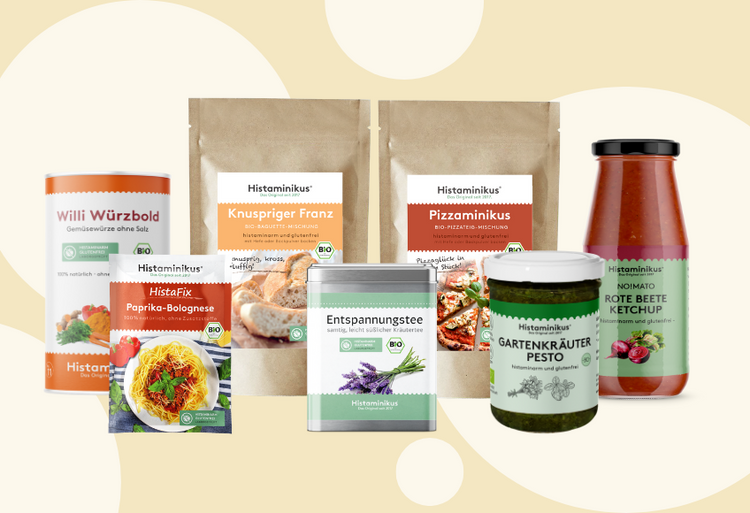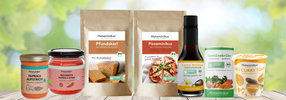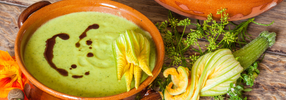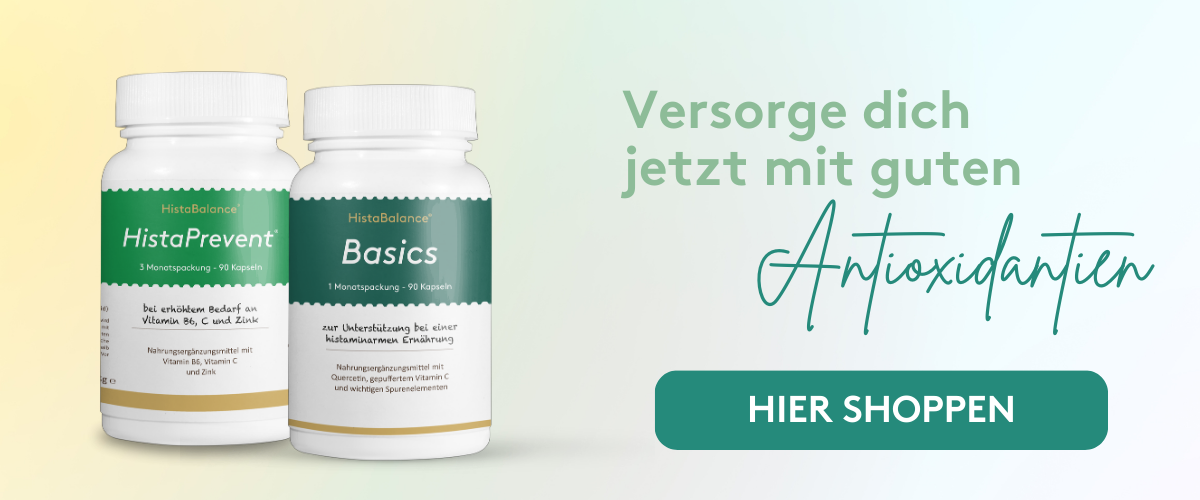
Inflammation and histamine intolerance
Inflammation are among the most basic processes in your body. They are vital and play a central role in the defense against infections and healing tissue injuries. But what actually happens during inflammation and how can you support your body in keeping inflammation in balance? We want to answer these questions today.
What is inflammation?
👉🏼 Inflammation is a reaction of your immune system to harmful stimuli such as pathogens, injured tissue or toxic substances. Your goal is to eliminate the harmful influence and to start the healing process.
Share information about your brand with your Customers. Describe A Product, Make Announcements, Or Welcome Customers to your Store.
Development of inflammation
If your body comes across an injury or an infection, the immune system is alerted. White blood cells and other immune cells are sent to the scene to combat the intruders and repair the damaged tissue. Various messenger substances are released, including cytokines that regulate the inflammatory reaction. The inflammation manifests itself through the classic signs: redness, swelling, warmth, pain and limited function. These symptoms arise because blood vessels are expanded (reddening and heat), liquid exits (swelling) and pain receptors are activated. Another more common reason for inflammation is free radicals if our body does not provide enough antioxidants. Free radicals arise in organisms from exogenous or endogenous factors. An example of endogenous factors is the overload of the combustion processes in the mitochondria. Exogenous factors are, for example, environmental toxins or cigarette smoke.
Share information about your brand with your Customers. Describe A Product, Make Announcements, Or Welcome Customers to your Store.
The role of inflammation in the body
Even if inflammation is often associated with negative conditions, they are initially a positive and important process. They help your body ward off harmful stimuli and initiate the healing process. Without inflammation, your body would not be able to combat infections or repair tissue damage. In short: inflammation is a sign that your immune system works and reacts to threats.
Share information about your brand with your Customers. Describe A Product, Make Announcements, Or Welcome Customers to your Store.
Acute vs. chronic inflammation
There is a decisive difference between acute and chronic inflammation. While acute inflammation quickly and usually only last for a short time, chronic inflammation can remain over a longer period of time and lead to serious health problems. Acute inflammation is an immediate reaction to an injury or infection. As soon as the triggering factor has been eliminated, the inflammatory symptoms sound off and the healing process begins. Acute inflammation are typically short -lived and often characterized by recognizable symptoms such as pain and swelling. Chronic inflammation, on the other hand, arises if the inflammatory process is not properly regulated and remains over a longer period of time. This can lead to a variety of diseases, including cardiovascular diseases, diabetes, arthritis and even cancer. Chronic inflammation is often less obvious and are therefore often referred to as "silent" inflammation. You can be noticeable through general fatigue and discomfort.
There are many factors that can trigger or worsen chronic inflammation. This includes:
- Unhealthy diet
- Lack of exercise
- stress
- Environmental factors
- Overweight
Share information about your brand with your Customers. Describe A Product, Make Announcements, Or Welcome Customers to your Store.
Histamine intolerance and inflammation
Histamine also plays a central role in the inflammatory process. It is a messenger that is released in allergic reactions and inflammation and helps to control the immune response. In the case of histamine intolerance, however, the body is unable to reduce histamine sufficiently, which can lead to an overload of the system. In the event of inflammation, histamine is released from certain immune cells. It causes the blood vessels to expand, which means that more immune cells can get to the place of inflammation. In people with histamine intolerance, however, this can lead to increased symptoms.
5 main functions of histamine for inflammation:
1. Vasor expansion: Histamine binds to H1 receptors on the endothelial cells (= the innermost cell layer of the blood vessels), which leads to an expansion of the blood vessels. This vascular expansion increases the blood flow to the affected tissue and enables better supply of oxygen and nutrients that are necessary for the defense reaction.
2. Increasing vascular permeability: Due to the effect on H1 receptors, histamine increases the permeability of the blood vessels. This enables white blood cells, antibodies and other defenses to get more easily into the tissue from the bloodstream, where they can combat the inflammation. At the same time, however, this also leads to the accumulation of liquid in the tissue, which can lead to swelling (e.g. edema).
3. Taking immune cells: Histamine also has a chemotactic effect, which means that it attracts immune cells, especially neutrophils, eosinophiles and other leukocytes to the inflammatory area. This promotes the local immune response and helps to fight pathogens.
4. Pain and itching: Histamine stimulates nerve endings and can cause pain and itching, which often occurs in inflammatory processes and allergic reactions (as with insect bites or contact dermatitis).
5. Influence of other inflammatory mediators: Histamine can also promote the release of other inflammatory mediators such as cytokines and leukotriene from the immune cells, which further increases the inflammatory reaction.
In summary, histamine contributes significantly to regulating the inflammatory reaction by promoting both blood supply and immunzell recruitment as well as local immune response. However, an excessive release of histamine, as occurring with allergic reactions or certain diseases, can also lead to excessive inflammation and tissue damage.
Histamine -related causes of inflammation can be:
- Department of the DAO, DAO deficiency
- Weakened immune system
- Histamine-rich nutrition or nutrition with DAO blockers (e.g. alcohol)
- Medicines that act as DAO blockers
- Disorder of the intestine microbiome
- Leaky good syndrome
Share information about your brand with your Customers. Describe A Product, Make Announcements, Or Welcome Customers to your Store.
Advertising
Image with text
With great care We develop nutritional supplements in cooperation with doctors and therapiststhat specifically on the needs of those affected by one Histamine intolerance are coordinated. So we ensure a wide range of know-how in the development of our nutritional supplements in order to give you more well-being.
Fortunately, there are some measures that you can take to specifically counteract inflammation.
👉🏼 Anti -inflammatory diet:
A low -inflammatory diet can make a decisive contribution to reducing inflammation and improving your general well -being. Certain foods have natural anti -inflammatory properties and should be regularly on your menu.
👉🏼 Good food for inflammation:
- Omega-3 fatty acids: These can be found in fat fish such as salmon, as well as in linen and chia seeds. Omega-3 fatty acids have an anti-inflammatory effect.
- Antioxidants: Fruit and vegetables such as berries and kale are rich in antioxidants that can neutralize free radicals and reduce inflammation.
- Nuts and seeds are rich in healthy fats and antioxidants.
- Kurkuma contains curcumin, a strongly anti -inflammatory active ingredient that can reduce inflammation in the body with regular consumption.
👉🏼 Bad food for inflammation:
- Sugar: Excessive consumption of sugar can stimulate the production of inflammatory cytokines and increase inflammation.
- Processed foods: These often contain trans fats, which also have inflammatory effects.
- Red meat and processed meat products: These are rich in saturated fatty acids that promote inflammation.
- Refined carbohydrates: white bread, pasta and other refined carbohydrates have a high glycemic index that can lead to increased blood sugar levels and associated inflammatory processes.
👉🏼 In addition to an anti -inflammatory diet, there are other approaches to reduce inflammation in your body and to avoid chronic inflammation:
1. Sufficient movement
Regular physical activity helps reduce inflammation. Movement promotes blood circulation, strengthens the immune system and can help to reduce excess body fat.
2. Stress management
Chronic stress can lead to an increased cortisol level, which in turn promotes inflammatory processes. Relaxation techniques such as meditation, yoga or breathing exercises can help to reduce stress and thus reduce inflammation.
3. Sufficient sleep
Sleep is essential for the regeneration of your body. As you sleep, inflammatory processes are shut down and the body can recover. So pay attention to sufficient and good sleep quality.
4. Refraining from smoking and alcohol
Smoking and excessive alcohol consumption are known inflammatory factors, they are cell toxins. Both habits should therefore be avoided or severely restricted to prevent chronic inflammation.
5. Promotion of a healthy intestinal flora
A healthy intestine is crucial for a strong immune system. Probiotics and fiber support a healthy intestinal flora and not only help with your histamine intolerance, but also to prevent inflammation.
6. Vitamins and trace elements
If necessary, it can be helpful for inflammation or to prevent inflammation to supplement certain vitamins and trace elements in the form of nutritional supplements. Good antioxidants are particularly vitamin C, zinc, magnesium, iron and selenium. Vitamin C and zinc can be found in our Histaprevent, vitamin C and magnesium in our basics capsules.
Share information about your brand with your Customers. Describe A Product, Make Announcements, Or Welcome Customers to your Store.
Conclusion
Inflammation is an indispensable part of your immune system, which protects you from infections and injuries. However, chronic inflammation can lead to serious health problems in the long term. With a low -inflammatory diet, a healthy lifestyle and awareness of the signals of your body, you can get inflammation under control and ensure your long -term well -being. By integrating anti -inflammatory food into your menu, reducing stress and paying attention to your health, you support your body in balance.
Collapsible content
SOURCES
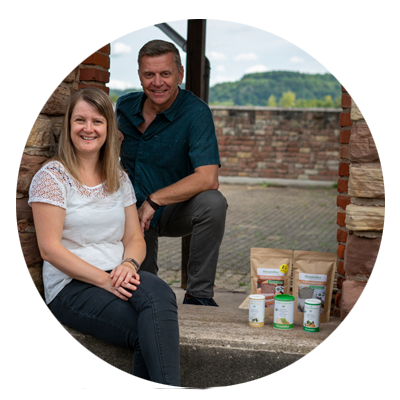
From those affected for those affected
We are Thomas and Michaela Zinser, founder of Histaminikus.
Because of the own histamine intolerance of Michaela and our son, we founded Histaminikus. The frustration does not find any suitable histamine food has spurred us to develop low -histamine food.
We would like to give you back a piece of quality of life. Feel free to look around with us.
Kind regards
Thomas and Michaela
